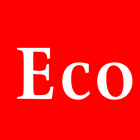
2016-1022 | The Economist-045
介绍: Stopping CETA: Hot-air Walloons
A tiny region of Belgium opposes trade for reasons that are hard to understand
From The Economist 20161022
Audio:
0:00
Bravely resisting the Canadian menace
“HEY Canada, fuck you.” Within hours this tweet (the result of a hack) from the Belgian foreign minister’s acco...
介绍: Stopping CETA: Hot-air Walloons
A tiny region of Belgium opposes trade for reasons that are hard to understand
From The Economist 20161022
Audio:
0:00
Bravely resisting the Canadian menace
“HEY Canada, fuck you.” Within hours this tweet (the result of a hack) from the Belgian foreign minister’s account was replaced with a friendlier message: “keep calm and love Canada”. Yet his country’s actions are closer to the original. On October 14th the regional parliament of Wallonia voted to block the Comprehensive Economic and Trade Agreement (CETA), a trade deal between the European Union and Canada.
Twentieth-century trade deals slashed tariffs. Newer ones between rich countries, such as CETA, focus on cutting other barriers to trade. After seven years of haggling, European negotiators dream of European toys and electrical products being sold straight to Canadians, without having to go through a second round of health and safety checks.
Coordinating standards with another country inevitably means surrendering a little sovereignty. This riles many Europeans, who worry that CETA will dilute environmental standards and labour laws; they suspect that new courts established by the treaty to settle investor disputes with governments will favour corporations over regulators.
But plans for such courts have already been reformed, notes Marietje Schaake, a liberal Dutch MEP. The latest proposals make them more independent and transparent. On October 18th Cecilia Malmstrom, the EU’s trade commissioner, wearily offered to add a “plain language” declaration to clarify the deal.
CETA has other more traditional detractors who hate the fact that it also hacks away at 99% of customs duties between Canada and the EU. Wallonia boasts one cow for every three humans and its lavishly subsidised farmers are wary of cheap Canadian competition. Erwin Schöpges, a Walloon dairy farmer who joined the protests outside parliament, says he already faces milk prices below his production costs. “We want to trade with Canada, but we would rather not abolish tariffs,” he says.
In any trade deal there are winners and losers: the former, more numerous; the latter, more passionate. The Belgian government may buy off its farmers, but even so more hurdles await. CETA must be ratified by 38 regional and national EU parliaments before it can be implemented fully. Mr Schöpges says the protest in Wallonia was less lively than the one he attended in Hamburg a few weeks earlier; opposition in Germany and France could just as easily derail proceedings.
CETA would make Europe €5.8 billion a year richer, by one estimate. But the real danger of letting Wallonia derail it is the precedent it would set. With so many potential vetoes, says Chad Bown of the Peterson Institute for International Economics, it is hard to imagine the Transatlantic Trade and Investment Partnership (a much bigger deal between America and the EU) being passed. And as for Britain’s prospects after Brexit, Ms Malmstrom says: “if we can’t make (a deal) with Canada, I’m not sure we can make (one) with the UK.”
Copyright © 2015-2016 Share2China.com | Powered by Flask and MongoDB
